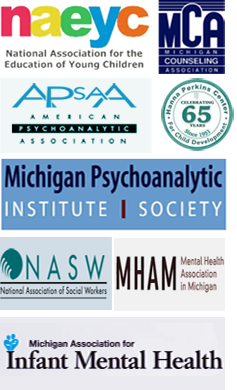Therapist’s Tips for Bonding with Newborns or Infants after Adoption
Many adoptive parents experience mild worries – or even anxiety – about their ability to bond with their infant. But what every adoptive parent needs to keep in mind is that the bond that develops between a baby and parent is not biological but psychological.
Contrary to common misconceptions, the bonding process does not always happen instantaneously! This is true for both biological and adoptive parents. Profound bonding occurs over a long period. And while initial bonding may happen at birth or adoption, a parent’s intense bond to their child develops over time through a variety of experiences: watching their baby grow, nursing them through sickness, or seeing them smile, laugh and stand for the first time.
Whether you are a new adoptive or biological parent, you are no doubt consumed and exhausted by the 24/7 demands of caring for this amazing little human. Non-stop diapers, bottles, laundry, bathing, etc. make most days more “reactive” than “proactive” – and not at all like the serene and glamour bonding that is unrealistically depicted in TV commercials!
Rest assured that what you are experiencing is normal. As you eventually settle into a routine – and learn to anticipate and meet your child’s needs – the parent-child bond will certainly blossom. Be patient!
As an experienced adoption therapist, I have assisted hundreds of parents of adopted newborns during the bonding process. And while your bond will no doubt develop naturally over time, here are a few tips to help the bonding process along in your child’s early months.
Use Kangaroo Care to Bond with Adopted Babies
One common technique to reinforce the bonding process and help infants thrive is so-called “kangaroo care.” This is a whimsical name for snuggling the baby chest-to-chest & skin-to-skin with the parent. This close physical contact allows the infant to feel, smell and hear her new mother or father – including the sound of their heartbeat.
Scheduling a daily “kangaroo time” routine – for example right before bed or right after feeding – ensures that you won’t get so busy with everything else that you forget to take the time to snuggle “Kangaroo Style.”
Adoption Therapists Recommend Using
Face Time to Bond with Adopted Babies
Eye contact is an important element of building relationships for everyone, especially infants. In addition to physical touch, babies need eye contact in order to grow and develop – just as they need food and water.
Watching a parent’s facial expressions is instrumental in wiring an infant’s brain to both trust, and to learn empathy.
It does not matter if you were not the first person who made eye contact with your adopted child! What matters is that you share “face time” multiple times every day – gazing into your baby’s eyes to cement that parent child bond.
Offer Rapid Response to Bond with Adopted Babies
Responsively meeting a baby’s needs in the first months of their life is essential to their healthy development. Contrary to some erroneous “old wives’ tales”, responding to your child rapidly in their infancy will not spoil them. Babies need to learn that their basic needs will be consistently met, and that Mommy and Daddy are the people who will do that.
Failure to respond to an infant’s needs can lead to attachment disorders and other trust issues.
Try using the “30 Second Rule” in responding to your adopted infant’s basic needs (hunger, thirst, wet diaper, etc.). Try to respond to your child within 30 seconds either physically – by immediately going to see if she needs to be changed, fed, rocked, cuddled, etc. – or verbally by responding “Mommy will be right there!”
This will not only help build the bond on your end – but will enable your infant to develop the trust and confidence that comes from knowing their needs will always be met by you.
Adoption Therapists Recommend
Using Feeding Time to Bond with Adopted Babies
Remember that each feeding time is a prime bonding opportunity. Every time you feed your adopted infant, they will learn to associate the contentment of being full with the love of their mother or father.
Make sure to hold your baby close, speak in happy and conversational tones, and make eye contact while feeding them. Avoid watching TV, simultaneously doing chores, or talking on your cell phone while feeding your infant. By prioritizing feeding time as a bonding opportunity, you and your child will rapidly grow closer together.
Experienced Adoption Therapists
Remember, bonding is not just one “magical moment” but a love, trust and closeness that grows over time.
If you are experiencing any issues related to your child’s adoption – including concerns about bonding – please do not hesitate to contact me. I am a specialized adoption therapist – and I have helped many families successfully navigate the unique issues related to adopted children.








